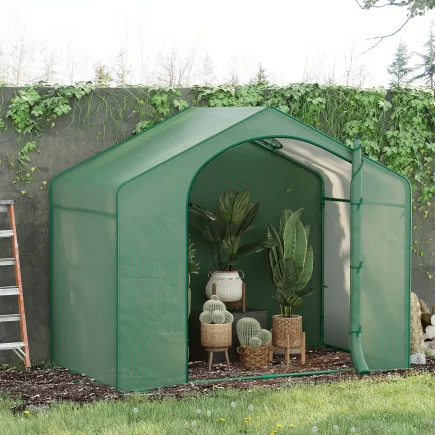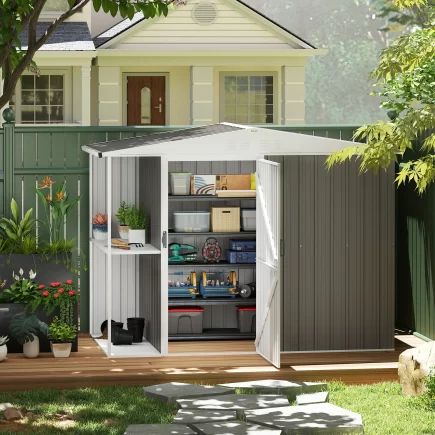When birthdays and Christmas roll around, it can be hard finding the perfect gifts for everyone every time. Everyone wants to make everyone happy with that perfect gift – especially their children. Why not get them something that fills their life with beautiful sounds while also teaching them something and broadening their horizons?
That is what’s so wonderful about learning to play music. Not only can it be fun, but it also makes you more intelligent, more creative, and can be a fantastic stress reliever.
To give you a hand, we’ve put together this handy dandy guide on musical instruments!
Who Can Learn To Play A Musical Instrument?
The answer is simple: literally, anyone can learn to play an instrument. Playing an instrument has tons of benefits (besides just being incredibly fun). What are those benefits, you ask?
1. Music Can Improve Your Health
Research shows that playing music can actually lower your blood pressure and reduce stress and anxiety levels. It can even help strengthen your immune system, which helps protect you from viruses.
2. Music Can Make You More Intelligent
Studies have shown that learning music can enhance cognitive ability at an early age. Seriously, if you are pining for your child to be the next Einstein, music is an excellent way to start.
3. Music Can Help Build Confidence and Your Social Life
It takes a lot of courage to go on stage in front of hundreds, or even thousands, of people to perform. It takes a lot of courage to perform in front of just your family, too. But when you learn to play an instrument, you are learning how to create something beautiful for others to enjoy.
Your child (and you!) may make new friends they might not make otherwise if they do not learn to play music. Nothing beats jamming out with other musicians, and the bonds forged during them are priceless.
4. Music Teaches Patience
Very few people are immediately perfect at something they’ve never tried before. For most people, practice makes perfect.
Learning to play music requires commitment and perseverance. It takes a lot of work to play an instrument. But there’s nothing quite as satisfying as successfully mastering something you have been working so hard to learn.
5. Music Improves Creativity!
There are basic rules in music, and some will have you think you must follow the notes to a T. But music is all about expressing yourself! Write your own songs, improvise, and recreate existing songs! Musicians create something out of nothing every day.
6. Music Can Help Improve Teamwork Skills
Unless you are planning to play solo forever, teamwork is critical in musical performances. It is essential to listen to your teammates, so everyone blends together seamlessly.
Listening to others and finding a good solution will help you in other areas where great teamwork is needed.
7. Stressed Out? Music Can Help!
Life can get stressful – even for little kids. Everyone seeks some form of stress relief, whether that is binging our favorite shows, playing games, eating, smoking, or other activities. As you can imagine, not all of them are healthy.
Another way people can let loose and relieve stress is by jamming out with their favorite instrument. Playing music can help get your mind off things while letting you release your frustrations.
8. Music Connects
Music connects people. You will be hard-pressed to find someone who does not like any kind of music.
Does your child suffer from social anxiety? Getting them started in music may be an excellent way to help them connect with their peers (Speaking from personal experience).
9. Music is Just Plain FUN!
Of course, learning to play music takes time and effort – but the payout is so rewarding. It is an addiction you will want your child to have.
Important Features
- Type of instrument
- Your Child’s Age
- Your Child’s Personality and Tastes
- Price
Different Types of Musical Instruments
Before you go out and buy instruments, you should consider the different kinds there are. Musical instruments are typically classified by the way they generate sound. There are four categories of instruments: string, wind, percussion, and keyboard. However, within each category are further divisions and subdivisions.
Here are a few examples of the different types of instruments in each category:
- String Instruments: Violins, violas, cellos, guitars, ukuleles
- Wind Instruments: Pipes, saxophones, clarinets, flutes, recorders, ocarinas
- Percussion Instruments: Drums, bongos, bells, cymbals
- Keyboard Instruments: Pianos, accordions, organs, harpsichords
These are just the common ones, too. There are over a thousand more musical instruments available all over the world.
How Old is Your Child?
Your child’s age is essential to consider when purchasing an instrument for them. Believe it or not, there is such thing as being too young to play an instrument. However! There are ways around that!
All I’m saying is you probably do not want to buy your two-year-old a professional-grade keyboard or grand piano. But you can still get them a toy piano keyboard with a working microphone to get them started.
As your child grows, you can upgrade to larger and more suitable instruments – like a 30 key grand piano set for kids with a music stand and bench.
Personality and Taste
Your child should always have a say in what instrument they play – after all, they are the ones that are going to play it. Putting time and effort into learning something is no fun if you do not want to do it.
When browsing for the perfect instrument for your child, take into account their personality!
Explore music with your child and test out different instruments. Find local trial sessions to see how your child reacts to certain types of instruments, whether it is a piano or a guitar. I would also recommend talking to a music teacher to help your child decide what instrument is right for them.
Pricing
Just like with any other kind of shopping – buying musical instruments also means thinking about reasonable prices. What kind of money do you expect to pay for a musical instrument?
Honestly, this depends on your personal preferences and budget.
Brand spanking new professional-grade musical instruments can cost anywhere from $100 to over $10,000. That is why used instruments are popular choices for new learners.
However, there are alternate options for your child. These options are also much cheaper.
























